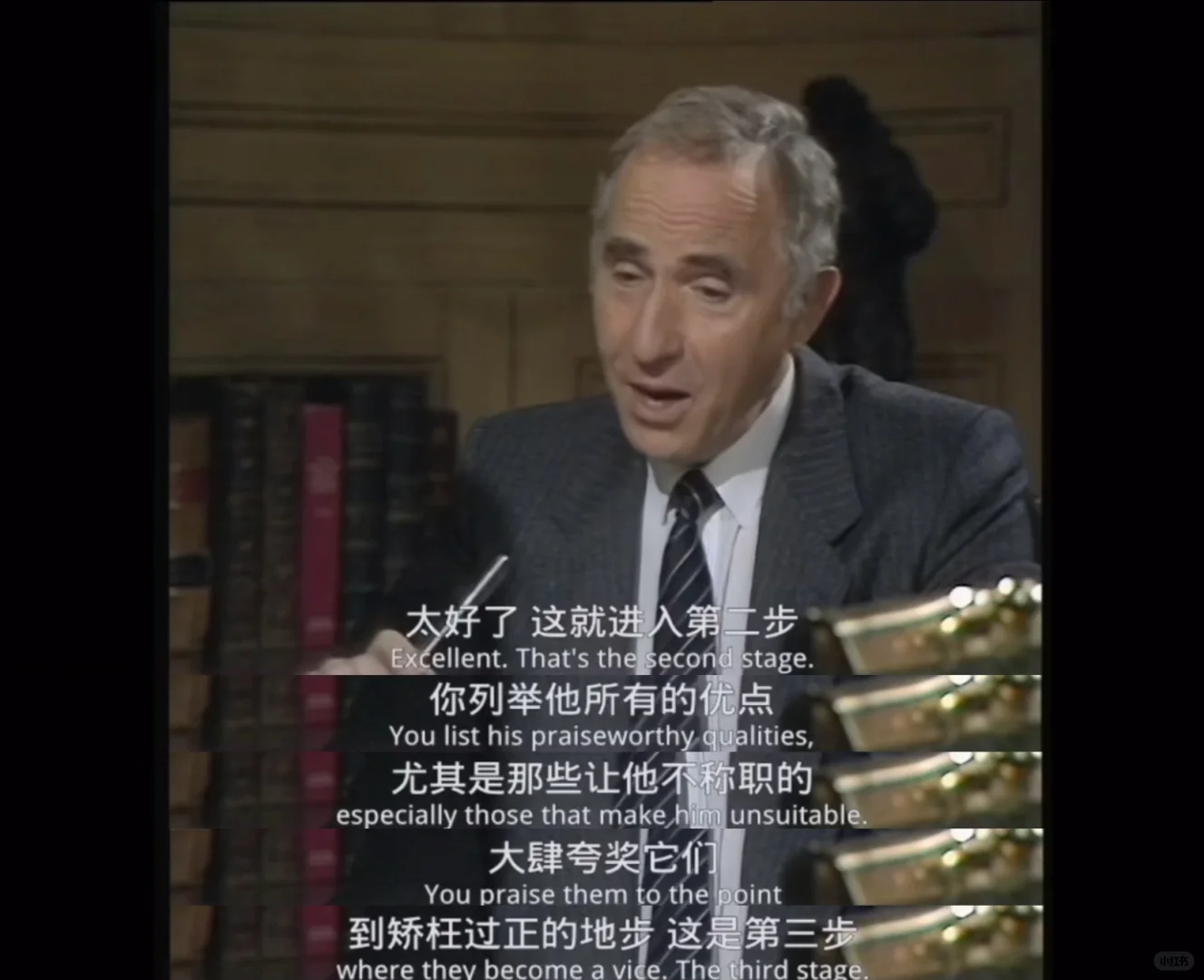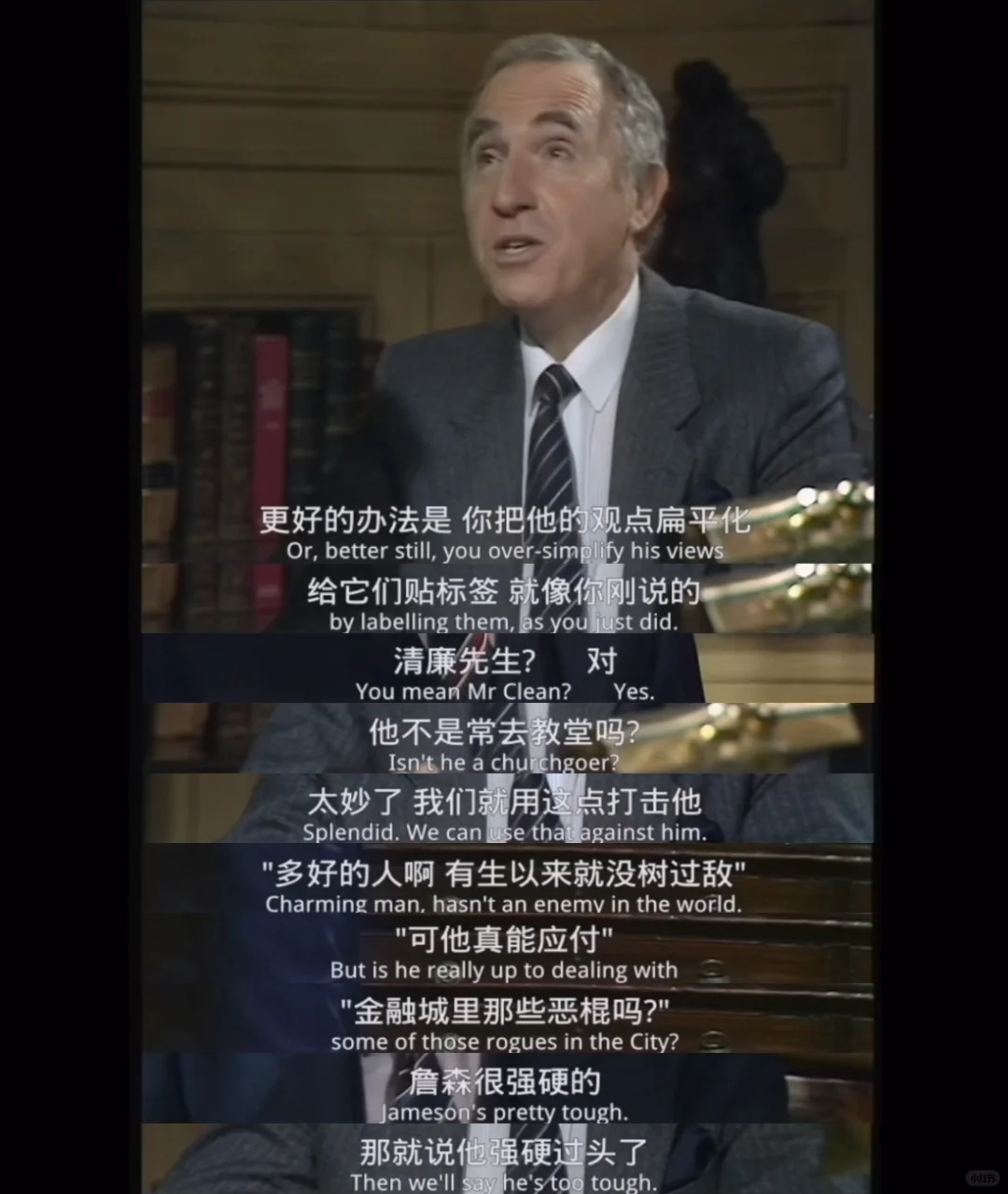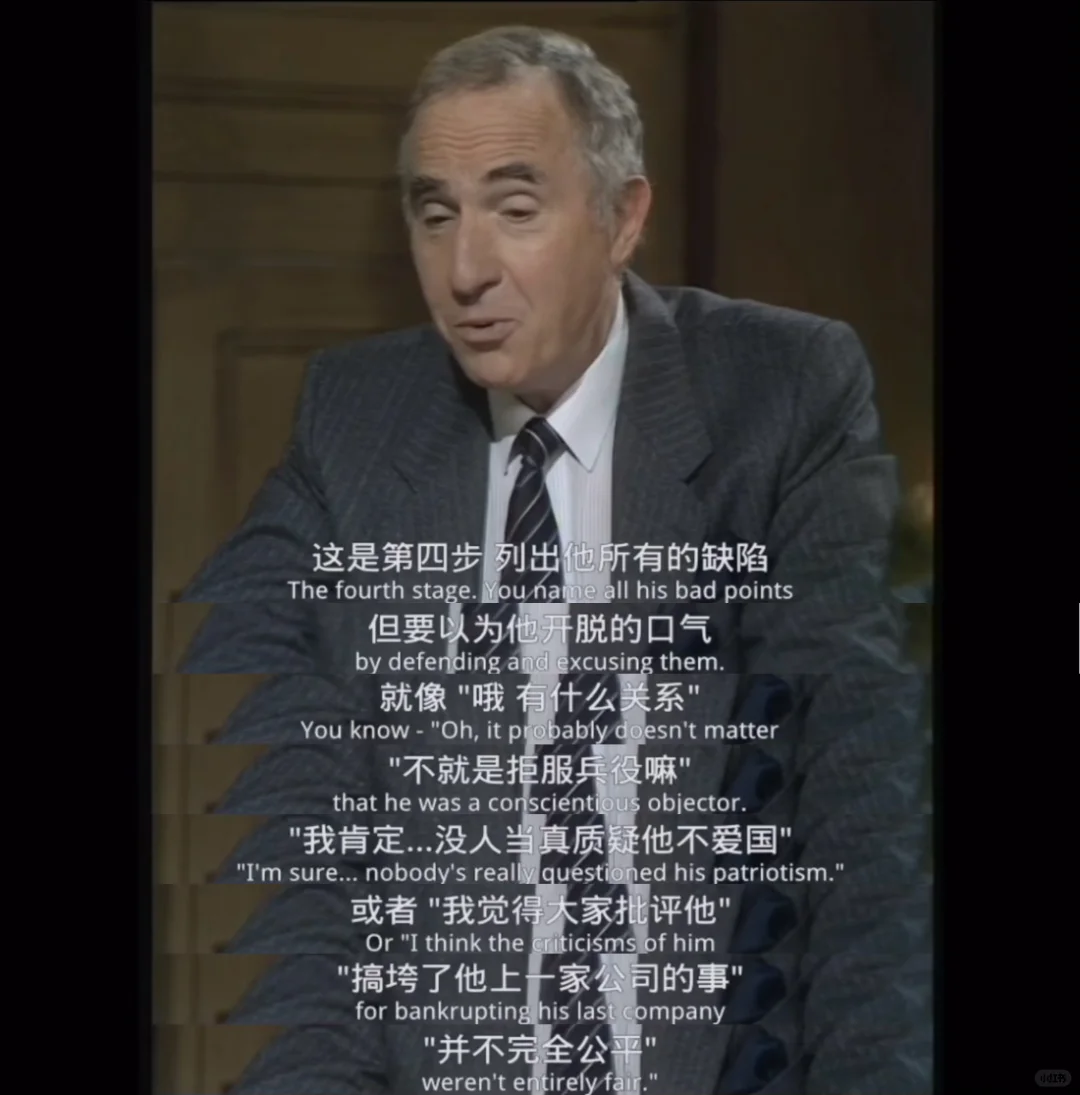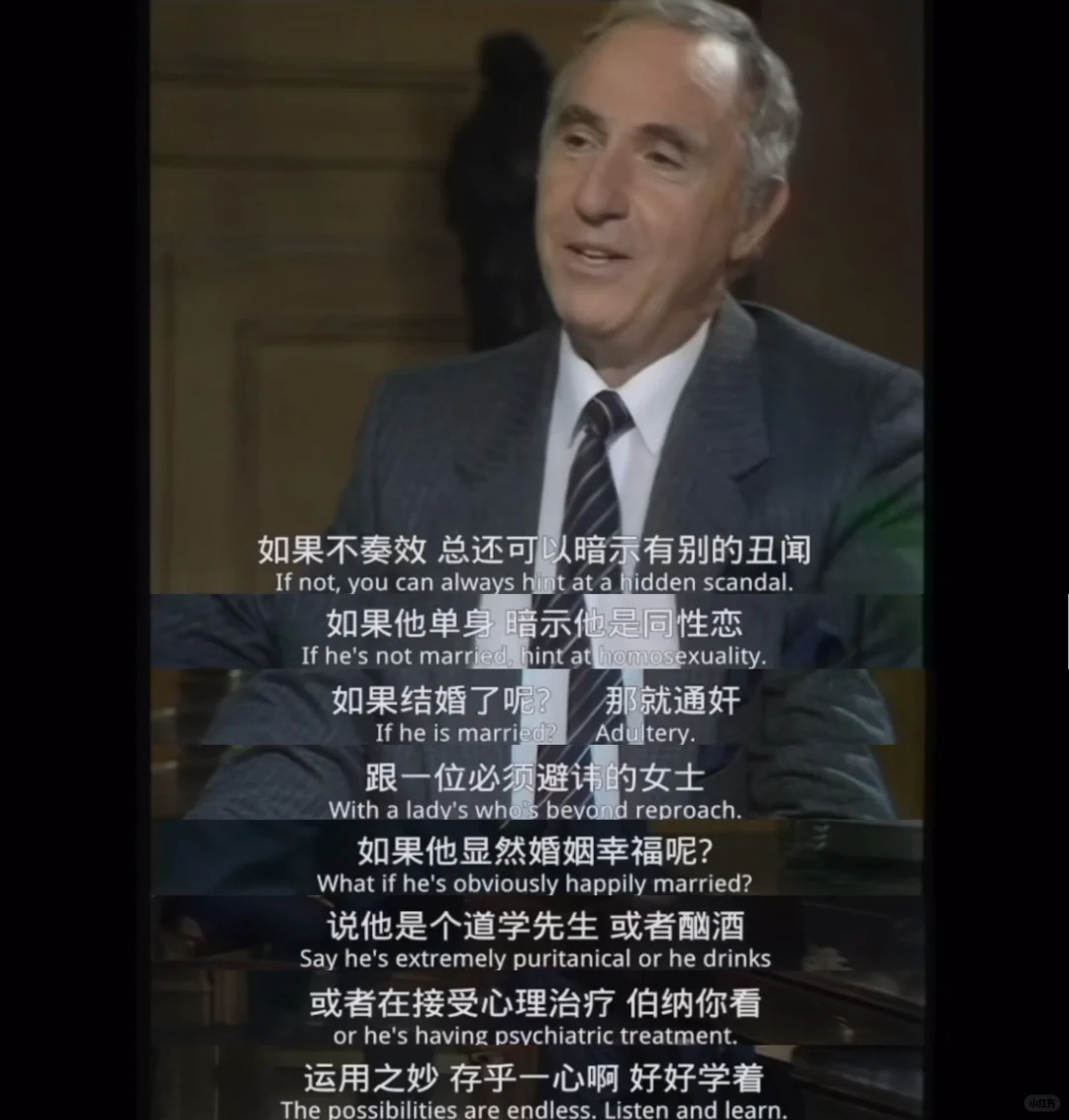
‘…If you want to suggest that someone is perhaps not the ideal choice [i.e. rubbish them — Ed.],
the first stage is to express absolute support.’
The reason,…is that you must never be on the record saying that somebody is no good.
You must be seen as their friend.
After all,…it is necessary to get behind someone before you can stab them in the back. …He spelled it out.

‘Stage One: Express absolute support. ’
Stage Two: List all his praiseworthy qualities, especially those that would make him unsuitable for the job. ’
Stage Three: Continue to praise those qualities to the point where they become positively vices. ’
Stage Four: Mention his bad points by defending and excusing them.’ Stage Three is simply done,…by oversimplification.


You label someone. If, for instance, someone is a good man he can seriously be damaged by calling him ‘Mr Clean’.

For instance, “it probably doesn’t matter that he was a conscientious objector, no one has ever really questioned his patriotism”. Or “I thought the criticisms of him for bankrupting his last company were not entirely fair”. That sort of thing.’ …Never before had I grasped the lethal possibilities of praise.
Humphrey explained that the same principle can be applied to the personal lives of those who cannot be smeared by praise in their professional lives.
All you need to do is hint at something that cannot be easily disproved.
And if it is disproved, you never said it anyway, you merely hinted. The best approach is to hint at a hidden scandal. For instance: 1. If not married — Homosexuality. 2. If married — Adultery, preferably with a lady who is beyond reproach, such as one of the royals or a television newsreader. 3. If happily married — Puritanism or Alcoholism. Or undisclosed Psychiatric Treatment.
The possibilities are most infinite. Careers can be brought to a juddering halt by generously referring to a chap as a great stimulator, a wonderful catalyst, a superb cook, an innovative chess player. As for oversimplification the stages are frightfully easy: 1. Take someone’s idea — say, a chap who believes that education subsidies should be funnelled through the parents rather than through the Local Education Authority. 2. Simplify it to the point of absurdity — ‘He believes in a complete free for all’. 3. Admit there was some truth in it once. ‘But we’ve all realised that there is a less extreme way of solving the problem.’ 4. Label him with the idea every time his name is mentioned. ‘Ah yes, the educational vouchers man.’ (Yes Prime Minister II, p. 115-6)
“……如果你想暗示某人可能不是理想的选择[即垃圾他们——编辑],第一阶段就是表达绝对支持。”
原因是……你绝不能公开说某人不好。您必须被视为他们的朋友。毕竟……必须先到别人背后才能在背后捅刀子。
“第一阶段:表达绝对支持。第二阶段:列出他所有值得称赞的品质,特别是那些使他不适合这份工作的品质。第三阶段:继续赞扬这些品质,直到它们变成积极的恶习。 “第四阶段:通过辩护和原谅来提及他的缺点。”
第三阶段就这么简单地完成了……过于简单化了。你给某人贴上标签。
例如,如果某人是个好人,称他为“清洁先生”可能会严重伤害他。
奇怪,但却是事实。
汉弗莱听说詹姆森经常去教堂,这一消息我得到了证实。事实上,我补充道,他曾经是一名非宗教传教士。汉弗莱的脸亮了起来。他的喜悦看起来很美丽。 ‘好消息!我们当然可以用它来对付他。我要求提供插图。汉弗莱爵士转向我,就像在对首相说话一样。
“在这种情况下,我们会进入第四阶段并说他太强硬了。例如,“他是一名依良心拒服兵役者可能并不重要,没有人真正质疑过他的爱国主义”。或者“我认为对他上一家公司破产的批评并不完全公平”。诸如此类的事情。
……我以前从未领会过赞美的致命可能性。汉弗莱解释说,同样的原则也适用于那些在职业生活中不能被赞扬所玷污的人的个人生活。
你所需要做的就是暗示一些不容易被反驳的事情。如果它被反驳了,你也从来没有说过,你只是暗示过。
最好的方法是暗示隐藏的丑闻。例如: 1. 如果未婚——同性恋。 2. 如果已婚——通奸,最好是与无可指责的女士通奸,例如皇室成员或电视新闻播音员。 3.如果婚姻幸福——清教主义或酗酒。或未公开的精神治疗。
可能性是无限的。如果慷慨地将一个人称为“伟大的刺激者”、“美妙的催化剂”、“出色的厨师”、“创新的国际象棋棋手”,职业生涯可能会陷入停顿。至于过于简单化,步骤非常简单: 1. 采纳某人的想法——比如说,一个小伙子认为教育补贴应该通过家长而不是通过当地教育局提供。 2. 将其简化到荒谬的地步——“他相信所有人都完全自由”。 3. 承认这句话有一定道理。 “但我们都意识到,还有一种不那么极端的方法可以解决这个问题。” 4. 每次提到他的名字时,都给他贴上这个想法的标签。 “啊,是的,教育券人。” (是的,第二任首相,第 17 页) 115-6)